WelcomeWelcome
PhDs on the Go
The School of Graduate Studies, in partnership with CBC Radio, has selected 10 passionate and inspiring PhD students to talk about their research on CBC Radio’s “On the Go" with host Ted Blades.
Broadcast dates are March 22 to April 5, at 5:00pm (NL time) just after news and weather. 640 on the AM dial and 88.5 of the FM dial.
PhDs On the Go is designed to bring graduate student research to broader public attention and is based on similar projects such as the national 3MT competition and CBC Radio's "Ideas from the Trenches." Memorial PhDs are so on the go that some of them will also be part of the MUNButtoned festival of research on April 7, 2017.
Did you miss PhDs on the Go on CBC Radio or the MUNButtoned event? No problem, all of the podcasts are available on CBC's website.
Our 10 PhDs On the Go for 2017 are (alphabetically):
Vashti Campbell
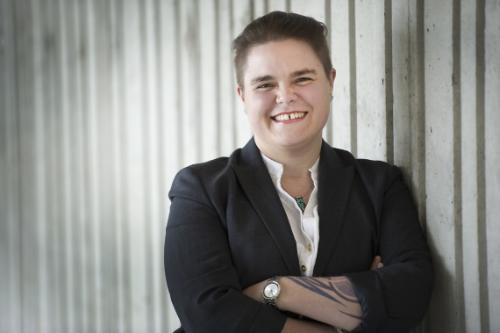
Division of Community Health & Humanities, Faculty of Medicine
Cultural narratives in psychiatry: Barriers to mental health for communities of colour in Canada.
Vashti’s research examines systemic, institutionalized racism in mental health care settings. They explore the effects of transcultural frameworks, institutional policies, and diagnostic texts on psychiatric praxis from the perspectives of mental health care providers and patients. Vashti is conducting an environmental scan of existing policies related to transcultural mental health care, comparing policies and diagnostic methods with evidence-based recommendations, and examining personal narratives of patients and care-providers related to quality of cultural care. Their research contributes to understanding how health care policies and organizational culture affect patient experiences. Nationally, policy discourse related to human and health care rights will be advanced.
Rebecca Draisey-Collishaw
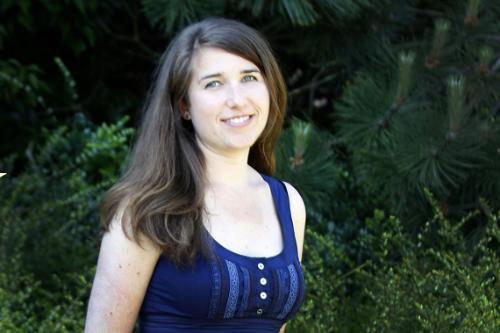
Ethnomusicology, School of Music, Faculty of Humanities & Social Sciences
Curating Canadianness: Public Service Broadcasting, Fusion Programming, and Hierarchies of Difference
“Fusion programming” is an approach to music broadcasting that was employed by the Canadian Broadcasting Corporation (CBC) during the early years of the twenty-first century in response to systemic and systematic pressure to be “more multicultural.” Rebecca’s research explores this type of programming, seeking to understand how certain sounds and people come to be perceived as more (or less) Canadian. She uses content analysis to parse subtle distinctions in voicing—the arrangement of voices on air—and discourse that reinforce or challenge historically entrenched perceptions of social centres and peripheries.
Marc Gruell
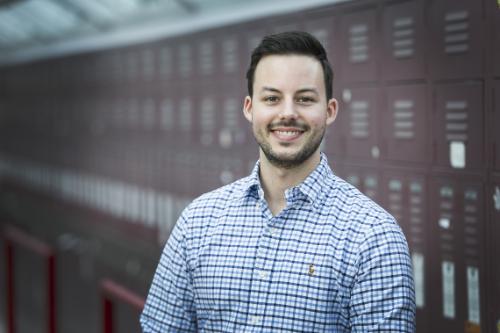
Department of Biology, Faculty of Science
Bacterial genetics: Using knowledge about bacterial molecules to our advantage.
Marc will present his research on bacterial genetics. He is specifically focusing on an essential molecule called Ribonucleic acid, or short RNA, which help regulate proteins. His research concentrates on RNAs that are made by a marine bacterium called Rhodobacter capsulatus by using the latest techniques in molecular biology to find out what these molecules do and how they affect this organism’s functions.
Amanda Hancock
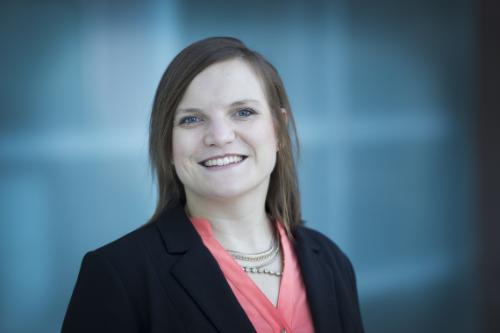
PhD in Management, Faculty of Business Administration
When the same leadership behaviours affect employees in different ways
Leadership style can affect costly employee behaviours such as sick leave, quitting, and presenteeism. Presenteeism describes an employee who is physically present at work, but not performing to their full capacity because they are mentally or physically unwell. While some employees may need a motivational push from their manager or supervisor to work a little harder, there are other employees who could benefit from more rest and recovery. Amanda’s research explores factors that could help leaders move towards a balance of healthy workplace for employees who are either thriving in their jobs, or vulnerable in some way.
Opeyemi Jaunty-Aidamenbor
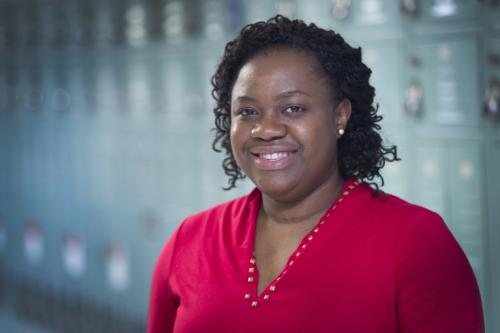
Interdisciplinary PhD, Faculty of Humanities & Social Sciences
Socio-economic effects of preferential immigration among skilled workers
Immigration is known to facilitate economic growth and an increasing number of countries and regional governments are implementing measures to facilitate the attraction and retention of skilled immigrants. Newfoundland and Labrador has a demographic future that suggests a huge need to augment its workforce. At the same time, it has witnessed setbacks in attracting and retaining skilled immigrants. Opeyemi will explore what the province stands to benefit from skilled immigration, and what factors must be addressed to enhance attraction and retention of skilled immigrants.
Katherine Morton
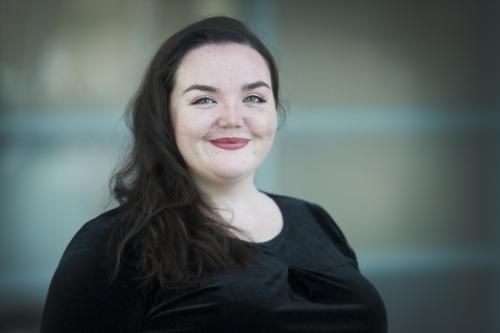
Department of Sociology, Faculty of Humanities & Social Sciences
Analyzing the buildings of residential schools and what social meaning they hold.
Katherine is looking at the physical structures of residential schools and the ways in which they continue to hold power and meaning. In this new era post truth and reconciliation commission, she examines how these crumbling buildings are still significant in the Canadian landscape.
Emma Quinlan
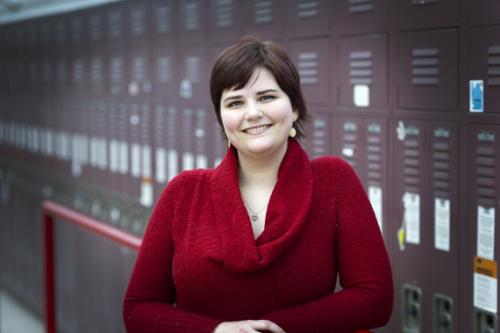
Department of Biomedical Sciences, Faculty of Medicine
Reverse engineering AID: An important immune system enzyme.
In this presentation, Emma talks about the research her team performs in Dr. Larijani’s Lab at Memorial University. They study activation induced cytidine deaminase (AID), an enzyme that prepares our immune system to fight the millions of different foreign invaders we encounter each and every day. In their lab, they are able to manufacture AID from different animals in order to study its evolution. They also study its physical characteristics in order to better understand this important enzyme.
Curtis Robinson
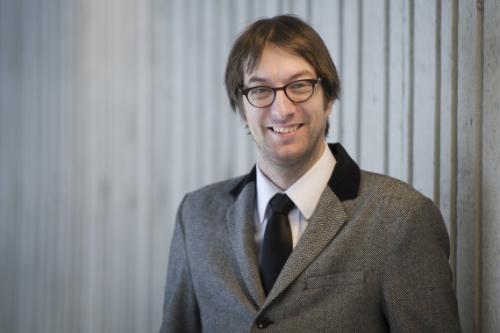
Department of History, Faculty of Humanities & Social Sciences
Ethnic Elites, Propaganda, Recruiting and Intelligence in German-Canadian Ontario, 1914-1918
Curtis’s research, through previously classified intelligence documents, has shown that, despite popular belief, Southwestern Ontario with its high concentrations of German communities were not prioritized as a threat by the intelligence branch of the Department of Militia and Defense. The reason was that the more traditional means of social control established under the modern liberal order proved sufficient in maintaining a watch on Canadians of German ancestry. A significant part of this depended on the ability of the German ethnic elites, the middle class of German descent, to maintain order among their workers and encourage patriotic activities, including but not limited to, enlistment in the CEF. Curtis examines how, unlike more populous and industrialized areas where the growth of capitalism created spatial divide between the middle and working classes, the “insecurity state” described by Wesley K Wark had not yet evolved and the presence of intelligence officers was not needed.
Jordan Zalis
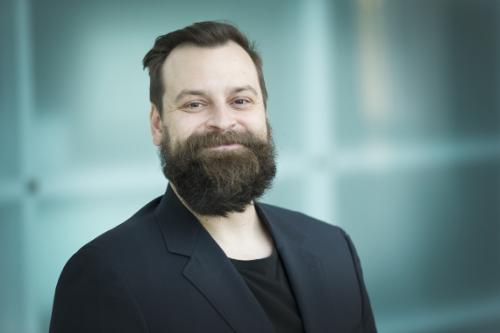
Ethnomusicology, School of Music, Faculty of Humanities & Social Sciences
Sound, Music, Sports, and Stories: The REDBLACKS and The Riot
Jordan’s research is focused on sound, music, and sport as they relate to ideas concerning
individual and group identity, social organization, and politics. This project is about football’s auralities and football’s pluralities in Ottawa’s TD Place Stadium. What does it sound like and why?
Mingxi Zhou

Department of Ocean & Naval Architecture, Faculty of Engineering & Applied Science
Mapping the underside of icebergs using an autonomous underwater vehicle.
A two-meter long, torpedo shaped underwater robot has been modified to map the underside of icebergs autonomously. In this presentation, Mingxi will briefly talk about the motivation behind the project, summarize the recent development and field trials, and talk about the next stage of the project.




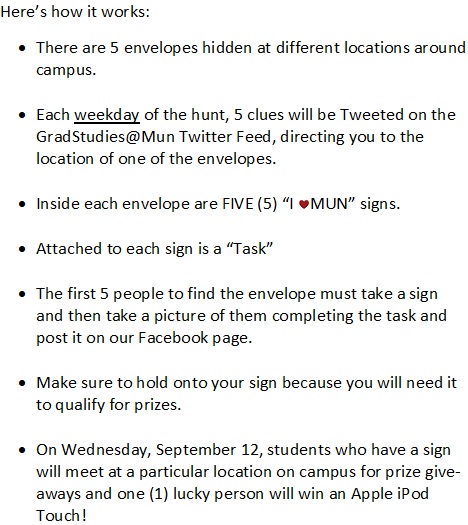
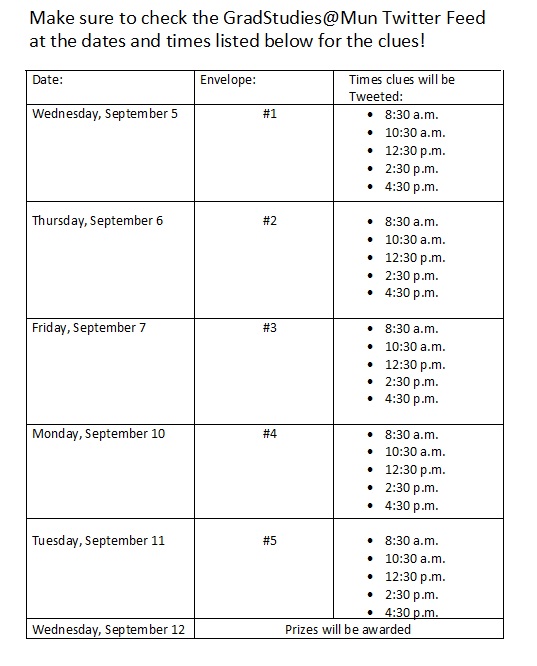
![]()
Rules and Regulations:
- Only current Memorial University graduate students are eligible to participate, student ID and confirmation of graduate status will be required.
- The contest will run from Wednesday, September 5 to Wednesday, September 12.Clues will be Tweeted on the GradStudies@Mun Twitter Feed
- Clues will only be Tweeted on weekdays
- Players must take a picture of themselves completing the task attached to the sign and post the picture, along with their name and email on the Memorial University School of Graduate Studies Facebook page in order to qualify for prizes.
- Players can only collect one sign each. Once you have one sign, you cannot play for additional signs. All signs will be tracked.
- The Scavenger Hunt will end at 11:00 a.m. on Wednesday, September 12, 2012.
- Students who have found an envelope must complete the task and post their picture on the School of Graduate Studies Facebook page by 11:00 a.m. on Wednesday, September 12, 2012.
- Pictures posted after 11:00 a.m. will not qualify for prizes.
- For more information please contact aforristall@mun.ca


